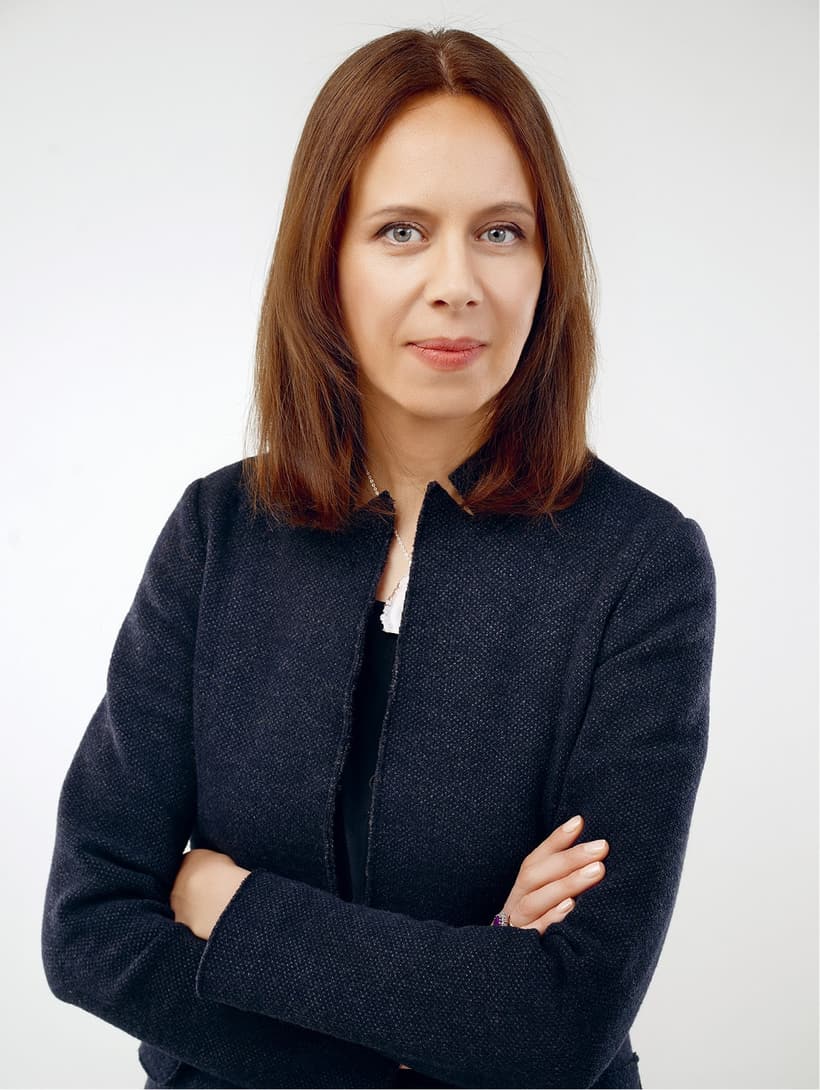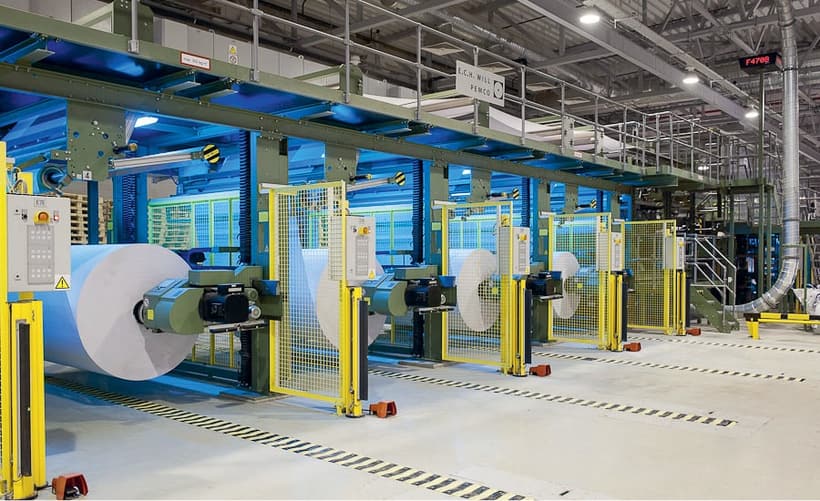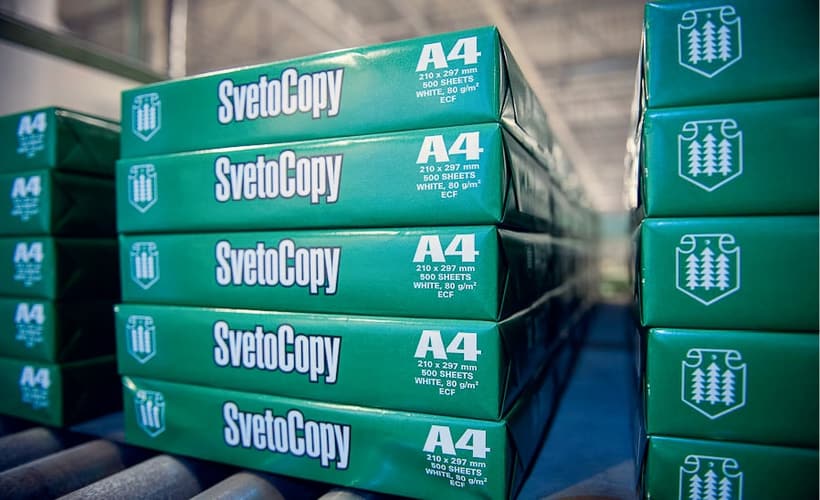The Paper Plan
Russia’s notoriously volatile actuality doesn’t put International Paper on alert. The US paper-maker is neither going to leave nor curb its investment in development at the local market. President of IP Russia Ksenia Sosnina speaks of why this is the case and what the company is up to in an interview with BRICS Business Magazine.
Russia is a relatively new region, based on the company’s history, which dates back nearly 120 years. What attracts IP to Russia?
We launched our business in Russia in 1998, and since then, International Paper has invested more than $700 million into expanding and modernizing production in Svetogorsk, which is a clear sign of our commitment to this country. In Russia, IP focuses on the production and marketing of office and offset papers, liquid packaging board, and bleached chemical thermo-mechanical pulp.
We are proud to say as well that our investments go well beyond the usual suspects in terms of cities and regions. In fact, our diverse portfolio of Russian assets, which includes those of our strategic partner Ilim Group – the largest integrated paper and pulp manufacturer in Russia – stretches from our Svetogorsk-based paper mill in the Leningrad region, past our operations at Arkhangelsk region in the North West, over to our mills in the Irkutsk region in Siberia. Our forest operations have been managed centrally in Tikhvin. We are truly a pioneer investor in Russia’s regions.
As it relates to Russia, in our business, we look for an alignment of four critical factors:
Firstly, raw materials. Russia owns almost a quarter of the world’s forests, yet utilizes less than 30% of these reserves. Russia’s abundant fiber supplywas central to our decision to invest in the Leningrad region, and more recently, in 2007 when we completed our partnership with the Ilim Group.
The second factor concerns the local infrastructure. It is one thing to have the raw materials, but quite another if you cannot transport those resources to your customers quickly, cheaply, and safely. Having a skilled labor market is also paramount when it comes to decision-making. Good management and talented, hard-working employees are core ingredients for long-term success.
And lastly, as an American investor, we place a great degree of emphasis on selecting regions with transparent governments and efficiently run local administrations. As an investor, we look for countries with coordinated industrial policy like they have in Brazil when it comes to greenfield investments – something worth considering since no new paper mill has been built in Russia for many decades now. Regions and administrations hungry to attract FDI need to achieve alignment on this investment criteria scorecard to successfully attract foreign multinationals to locate there.
What are the core markets of your Russian business? Are they purely domestic, or will you sell paper and packaging to other regions as well?
Historically, the domestic market was the key to our IP Russia business. At the same time, we are able to export paper and packaging produced in Russia to other countries where we see demand. Our regional footprint is one of the most unique features of International Paper’s go-to market model; it is what separates us from the competition – our ability to combine our approach with IP’s European Papers business, for example. With our partner Ilim Group, we could even sell our products to China.
How has the business developed recently, and how are the results for 2015?
The macroeconomic and market situation of 2015 was rather challenging because of the high volatility and uncertainty in the business environment. However, we turned this volatility into an opportunity to win in the marketplace. We increased our sales to Russia, and had the chance to find substitutes for some of our imports, which allowed us to improve our supply position in Russia.
The idea of sustainability is still relatively new to Russia, but there is no doubt that implementing sustainable principles will have a positive effect on the whole country’s economy, society, and environment. This is more than just a business goal; it is something that we must give back to society
 In 2015, we introduced a new product to the market – Ballet Brilliant, the A+ grade of office papers, produced in Russia. Ballet Brilliant provides Russian consumers with a strong alternative to imported paper in the premium segment.
In 2015, we introduced a new product to the market – Ballet Brilliant, the A+ grade of office papers, produced in Russia. Ballet Brilliant provides Russian consumers with a strong alternative to imported paper in the premium segment.
We were able to achieve a good balance by implementing key plans and initiatives, and ensuring a stable cash flow to drive successful investment and help implement strategic initiatives. Our partner Ilim Group also had stable operating results.
How has cooperation between IP and Ilim Group developed recently?
Our partnership is a real statement of a successful business partnership between a Russian and a US company. We have established an extremely strong working relationship together with our partners. IP invests a considerable amount of time and effort into this relationship. For example, we have four representatives from high-level company management as active Board members. Ilim Group plays a key role in our go-to-market for white papers, as it provides us with additional white-paper capacity. Ilim Group also makes our new product – Ballet Brilliant, which is the first ever office paper of A+ grade produced in Russia.
Does Russian legislation provide favorable conditions for the development of the pulp and paper industry? What has already been done and what remains to be achieved?
Among other things, we see a need to address waste recycling issues here. In order to create an effective waste recycling system in Russia, International Paper, the Russian pulp and paper industry association Bumprom, and other major companies have developed an initiative to create a Bumprom-run consultation mechanism to coordinate waste recycling within the industry. We announced this initiative during a recent FIAC meeting, chaired by Russian Prime Minister Dmitry Medvedev. In order to implement this initiative, we need support from other stakeholders.
Russia owns one of the largest resource bases in the world, and we therefore need to implement modern forest practices here – Sustainable Forest Management (SFM). And while there has clearly been some progress, including the adoption of the first National Forest Policy in history, there are still some important steps to be taken. We are considering further improvement of infrastructure and forest roads. There is a great need for education and training for the next generation of forestry specialists.
Finally, you need reliable transport logistics in order to deliver wood to the mill and finished products to customers. And yet, we and many other companies are concerned that some recent legislative measures, such as the introduction of a special fee for using federal roads, just bring in unnecessary uncertainty and additional costs.
Invest in Sustainability
What trends do you see in Russia, and how can you compare them with your experiences in other countries?
Recently, International Paper commissioned research into the potential benefits of SFM in the Leningrad region, carried out by the Green Forest Fund. According to the research, from an economic perspective, SFM could boost the timber sector’s efficiency. This example is more convincing when Russian practices are compared with those in Finland. Finland implemented SFM many years ago, while Russia is just setting out on this road. According to Metla reports, the yield of softwood in central and south Finland is about three cubic meters per hectare per year compared with northwest Russia, which has yields of about 0.5 cubic meters per hectare per year. Both countries have spectacular forest resources. These Finnish results give an indication of the potential of Russia’s forests if they were managed according to SFM principles. We believe that success can only be achieved through fruitful cooperation between business, government, and academia.


What about sustainability? Does this concept work for International Paper in Russia?
For successful businesses, sustainability isn’t something we can put off until tomorrow. It drives shareholder value and is essential for business success today.
Sustainability is the core of IP businesses and of Russian business as well. International Paper’s Sustainability policy is a long-term strategy. Our story begins with forests, and SFM is therefore extremely important to us, as you can see. We are very committed to the environment and we care about air quality. We have introduced energy efficiency initiatives. We actively support educational, medical, and cultural regional programs, and have spent over $8.5 million over the last decade in Russia.
Do you see other Russian businesses beyond your sector making efforts towards increasing sustainability?
The idea of sustainability is still relatively new to Russia, but there is no doubt that implementing sustainable principles will have a positive effect on the whole country’s economy, society, and environment. This is more than just a business goal; it is something that we must give back to society.
As an American investor, we place a great degree of emphasis on selecting regions with transparent governments and efficiently run local administrations. As an investor, we look for countries with coordinated industrial policy like they have in Brazil when it comes to greenfield investments – something worth considering since no new paper mill has been built in Russia for many decades now
In Russia, some major businesses have implemented sustainability projects. Tetra Pak is one such company. In addition to its numerous initiatives, it supports and promotes the FSC certification of fiber. We recently worked together on the organization of the first FSC business forum for CIS countries. Unilever is another example. The company has its own sustainability goals and has achieved many of them. IKEA has also achieved good results in the area of sustainability – the company uses environmentally safe materials and engages customers to recycle hazardous items, such as used batteries.
Efficient implementation of sustainability principles in practice is impossible without support from the academic community. We are therefore glad that we have a like-minded educational institution here in Russia – the Moscow School of Management SKOLKOVO. Earlier this year, IP joined SKOLKOVO and Unilever to launch a Sustainable Lab. We hope that by working together with the business and academic sectors, we will create a bright future for our children and the generations to come.











